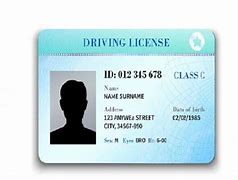Feature
SC urged to hear plea allowing extended use of Aadhaar

New Delhi: The Centre on Thursday urged the Supreme Court to constitute a constitution bench to hear its plea to allow the use of Aadhaar card for the disbursal of benefits under various social welfare schemes and also in banking and financial transactions.
As Attorney General Mukul Rohatgi asked the apex court bench headed by Chief Justice H.L. Dattu to constitute a larger bench to hear their plea for “clarification/ modification” of the August 11 order, the court said it was “very difficult” to constitute a larger bench for an early hearing.
Chief Justice Dattu said that it was difficult to spare nine judges to hear the plea as it would adversely affect the working of other courts.
Having said this, Chief Justice Dattu said he would consider the plea by Friday evening.
The Attorney General mentioned the matter after the bench of Justice J. Chelameswar, Justice S.A. Bobde and Justice C Nagappan on Wednesday referred a batch of applications, by the government and other agencies, seeking use of Aadhaar card on a voluntary basis, to a larger bench as it refused to relax its August 11 interim order.
The apex court had restricted the use of Aadhaar card for distribution of foodgrain under PDS, supply of kerosene oil and LPG only.
By its August 11 order, the court referred to a larger bench the question whether right to privacy was a fundamental right – an issue rooted in the conflicting judgments of the apex court.
The order referring the matter to a larger bench had come on a batch of petitions including by the former judge of Karnataka High Court Justice K.S. Puttaswamy, who contended that the biometric data and iris scan that was being collected for the issuance of Aadhaar card violated the fundamental right to privacy of the citizens as personal data was not protected, and was vulnerable to exposure and misuse.
The apex court by its 1954 judgment by a bench of eight judges and later in 1964 by a bench of six judges had held that the right to privacy was not a fundamental right but from 1975 onwards, the smaller two or three judges’ bench elevated the right to privacy as a fundamental right.
Entertainment
Meghalaya Reserves Legalized Gambling and Sports Betting for Tourists

The State Scores Extra High on Gaming-Friendly Industry Index
Meghalaya scored 92.85 out of 100 possible points in a Gaming Industry Index and proved to be India’s most gaming-friendly state following its recent profound legislation changes over the field allowing land-based and online gaming, including games of chance, under a licensing regime.
The index by the UK India Business Council (UKIBC) uses a scale of 0 to 100 to measure the level of legalisation on gambling and betting achieved by a state based on the scores over a set of seven different games – lottery, horse racing, betting on sports, poker, rummy, casino and fantasy sports
Starting from February last year, Meghalaya became the third state in India’s northeast to legalise gambling and betting after Sikkim and Nagaland. After consultations with the UKIBC, the state proceeded with the adoption of the Meghalaya Regulation of Gaming Act, 2021 and the nullification of the Meghalaya Prevention of Gambling Act, 1970. Subsequently in December, the Meghalaya Regulation of Gaming Rules, 2021 were notified and came into force.
All for the Tourists
The move to legalise and license various forms of offline and online betting and gambling in Meghalaya is aimed at boosting tourism and creating jobs, and altogether raising taxation revenues for the northeastern state. At the same time, the opportunities to bet and gamble legally will be reserved only for tourists and visitors.
“We came out with a Gaming Act and subsequently framed the Regulation of Gaming Rules, 2021. The government will accordingly issue licenses to operate games of skill and chance, both online and offline,” said James P. K. Sangma, Meghalaya State Law and Taxation Minister speaking in the capital city of Shillong. “But the legalized gambling and gaming will only be for tourists and not residents of Meghalaya,” he continued.
To be allowed to play, tourists and people visiting the state for work or business purposes will have to prove their non-resident status by presenting appropriate documents, in a process similar to a bank KYC (Know Your Customer) procedure.
Meghalaya Reaches Out to a Vast Market
With 140 millions of people in India estimated to bet regularly on sports, and a total of 370 million desi bettors around prominent sporting events, as per data from one of the latest reports by Esse N Videri, Meghalaya is set to reach out and take a piece of a vast market.
Estimates on the financial value of India’s sports betting market, combined across all types of offline channels and online sports and cricket predictions and betting platforms, speak about amounts between $130 and $150 billion (roughly between ₹9.7 and ₹11.5 lakh crore).
Andhra Pradesh, Telangana and Delhi are shown to deliver the highest number of bettors and Meghalaya can count on substantial tourists flow from their betting circles. The sports betting communities of Karnataka, Maharashtra, Uttar Pradesh and Haryana are also not to be underestimated.
Among the sports, cricket is most popular, registering 68 percent of the total bet count analyzed by Esse N Videri. Football takes second position with 11 percent of the bets, followed by betting on FIFA at 7 percent and on eCricket at 5 percent. The last position in the Top 5 of popular sports for betting in India is taken by tennis with 3 percent of the bet count.
Local Citizens will Still have Their Teer Betting
Meghalaya residents will still be permitted to participate in teer betting over arrow-shooting results. Teer is a traditional method of gambling, somewhat similar to a lottery draw, and held under the rules of the Meghalaya Regulation of the Game of Arrow Shooting and the Sale of Teer Tickets Act, 2018.
Teer includes bettors wagering on the number of arrows that reach the target which is placed about 50 meters away from a team of 20 archers positioned in a semicircle.
The archers shoot volleys of arrows at the target for ten minutes, and players place their bets choosing a number between 0 and 99 trying to guess the last two digits of the number of arrows that successfully pierce the target.
If, for example, the number of hits is 256, anyone who has bet on 56 wins an amount eight times bigger than their wager.



















